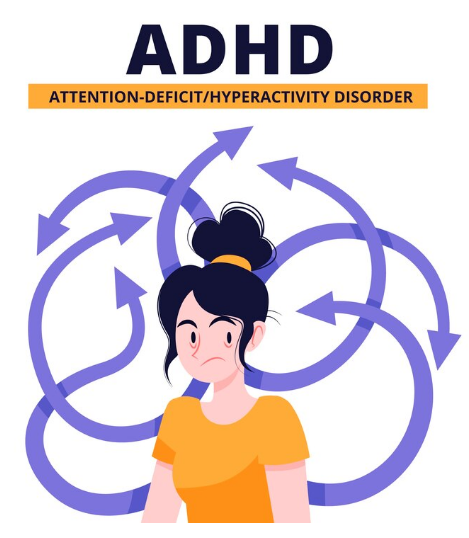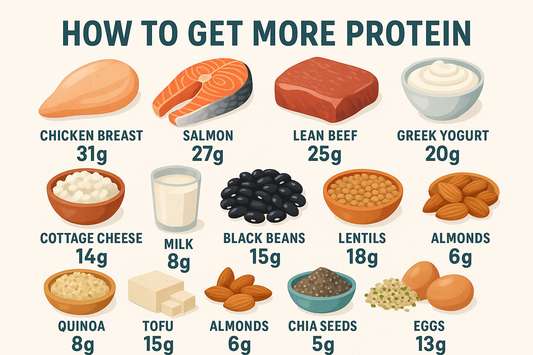If you're concerned about your child's ability to focus, sit still, or control their impulses, you're not alone. Attention Deficit Hyperactivity Disorder (ADHD) affects millions of children and teens, impacting their daily lives, social relationships, and academic performance. But there is hope. Effective treatments are available to manage ADHD symptoms, and understanding the options is crucial in finding the right approach for your child. As you navigate the complex landscape of ADHD treatment, this article will guide you in exploring the various strategies, from medication to psychotherapy, and help you make an informed decision about which one is most effective for your child.
What is ADHD?
While attention deficit hyperactivity disorder (ADHD) is a common condition, it's often misunderstood. To effectively treat ADHD, it's important to understand what it is and how it affects individuals.
Definition
One way to think about ADHD is as a developmental disorder associated with an ongoing pattern of inattention, hyperactivity, and/or impulsivity. Attention deficit disorder (ADD), on the other hand, is characterized by inattention without hyperactivity/impulsivity, leading to difficulty focusing, organizing, staying on track, and daydreaming. These symptoms can interfere with daily activities and relationships, and ADHD begins in childhood, often continuing into the teen years and adulthood.
Symptoms
With ADHD, people experience an ongoing pattern of symptoms that can be categorized into two main types: inattention and hyperactivity-impulsivity. Some individuals mainly exhibit symptoms of inattention, while others primarily display symptoms of hyperactivity-impulsivity, and some experience both types of symptoms.
Understanding these symptoms is crucial in diagnosing and treating ADHD. By recognizing the signs of inattention, hyperactivity, and impulsivity, you can better support individuals with ADHD and help them manage their symptoms.

Key Takeaways: Which Strategy is Most Effective at Treating Attention Deficit Hyperactivity Disorder?
-
Combination Therapy is Most Effective**: A combination of medication, education or training, therapy, or a combination of treatments is most effective in treating ADHD in children and teens.
-
Medication is a Key Component**: Stimulant medications are the most common type of medication used to treat ADHD, and research shows they can be highly effective in reducing symptoms and improving functioning.
-
Psychotherapy and Parent Involvement are Crucial**: Psychotherapy, particularly behavioral therapy, cognitive behavioral therapy, and family and marital therapy, can help children and their families manage symptoms and improve everyday functioning. Parent involvement and education are vital components of effective therapy.
Signs of Inattention
Symptoms of inattention may include difficulties with paying close attention to details, sustaining attention during tasks, listening closely when spoken to, following through on instructions, and organizing tasks and activities. Individuals with ADHD may also avoid tasks that require sustained mental effort, lose things necessary for tasks, and be easily distracted or forgetful during daily activities.
Plus, individuals with ADHD may struggle with executive function skills, such as planning, time management, and self-regulation, which can further exacerbate symptoms of inattention.
Signs of Hyperactivity and Impulsivity
Definition-wise, hyperactivity and impulsivity involve excessive motor activity and a lack of self-control. Symptoms may include fidgeting, restlessness, interrupting others, blurting out answers, and difficulty waiting one's turn. In teens, hyperactivity may manifest as feelings of restlessness or acting as if driven by a motor.
Inattention, hyperactivity, and impulsivity can significantly impact daily life, relationships, and academic performance. By recognizing these symptoms and understanding how they affect individuals, you can provide support and help individuals with ADHD thrive.
How is ADHD Diagnosed in Children and Teens?
It is vital to understand the diagnostic process for ADHD to ensure that your child or teen receives an accurate diagnosis and appropriate treatment. Assessing a child's behavior is crucial to identify symptoms and differentiate between the subtypes of ADHD, such as inattentive type, hyperactive/impulsive type, and combined type.
Diagnostic Criteria
An ADHD diagnosis requires a comprehensive evaluation, and symptoms must have been present before the age of 12. Children up to age 16 years old are diagnosed with ADHD if they have had at least six persistent symptoms of inattention and/or six persistent symptoms of hyperactivity-impulsivity present for at least 6 months.
Evaluation Process
To diagnose ADHD, a thorough evaluation is necessary to determine the cause of the symptoms. During an evaluation, the health care provider or mental health professional may examine the child's mental health and medical history, ask permission to talk with family members, teachers, and other adults who know the child well, and use standardized behavior rating scales or ADHD symptom checklists.
Children and teens may undergo psychological tests that look at working memory, executive functioning, visual and spatial skills, or reasoning skills. These test can help detect psychological or cognitive strengths and challenges as well as identify or rule out possible learning disabilities.
Importance of Thorough Evaluation
The importance of a thorough evaluation cannot be overstated. A comprehensive evaluation that helps to rule out other conditions that may mimic ADHD symptoms, such as stress, sleep disorders, anxiety disorders, depression, or other physical conditions or illnesses.
For instance, a thorough evaluation can help identify underlying issues that may be contributing to your child's symptoms, ensuring that they receive the appropriate treatment and support. A thorough evaluation also helps to establish a baseline for future evaluations, allowing healthcare providers to track progress and make adjustments to treatment plans as needed.
Does ADHD Look the Same in All Children and Teens?
Your child's symptoms of attention deficit hyperactivity disorder (ADHD) may not be the same as those of another child with ADHD. In fact, ADHD symptoms can vary greatly from one individual to another, and even within the same individual over time.
Changes in Symptoms Over Time
Similarly, the way ADHD symptoms manifest can change as your child grows and develops. For example, hyperactivity and impulsivity may be more prominent in younger children, while symptoms of inattention may become more apparent as academic demands increase.
Age-Related Differences
An important aspect to consider is that ADHD symptoms can differ depending on your child's age. For instance, in young children, hyperactivity and impulsivity are often the most noticeable symptoms, whereas in adolescents, symptoms of inattention and impulsivity may become more prominent.
This variation in symptoms is crucial to understand, as it can impact the way ADHD is diagnosed and treated. By recognizing these age-related differences, healthcare providers can develop more targeted and effective treatment plans for your child.

What Causes ADHD?
Once again, researchers are not sure what causes ADHD, although many studies suggest that genes play a large role. Like many other disorders, ADHD probably results from a combination of factors.
Genetic Factors
Factors related to genetics are thought to contribute to the development of ADHD. Studies have identified several genes that may contribute to the various risk factors of developing ADHD. After analyzing the genetic data of thousands of individuals, researchers have found that certain genetic variations are more common in people with ADHD than in those without the disorder.
-
Genetic mutations may affect the brain's ability to regulate attention and impulse control.
-
Genetic factors may influence the development of brain structures and systems involved in attention and impulse control.
Environmental Factors
One of many children the potential environmental factors that may contribute to the development of ADHD is prenatal exposure to tobacco smoke. Exposure to tobacco smoke during pregnancy may increase the risk of ADHD in children.
-
Prenatal exposure to tobacco smoke may affect brain development and increase the risk of ADHD.
-
Other environmental toxins, such as lead, may also contribute to the development of ADHD.
The environment in which a child grows up may also play a role in the development of ADHD. Any disruptions in the home environment, such as divorce or parental substance abuse, may increase the risk of ADHD in children.
-
A chaotic or unstable home environment may contribute to the development of ADHD.
-
Lack of structure and discipline in the home may also increase the risk of ADHD.
Brain Development and Function
An imbalance in the levels of certain neurotransmitters, such as dopamine and norepinephrine, may contribute to the development of ADHD. These neurotransmitters play a crucial role in regulating attention and impulse control.
-
Imbalances in neurotransmitter levels may affect the brain's ability to regulate attention and impulse control.
-
Abnormalities in brain structure and function, such as reduced activity in the prefrontal cortex, may also contribute to ADHD.
A difference in brain structure and function may also contribute to the development of ADHD. For example, studies have shown that people with ADHD tend to have a smaller prefrontal cortex, which is responsible for regulating attention and impulse control.

What are the Treatments for ADHD in Children and Teens?
Keep in mind that although there is no cure for ADHD, currently available treatments can help reduce symptoms and improve functioning.
Medication
What works best for your child may take some trial and error. Stimulants are the most common type of medication used to treat ADHD, and research shows these medications can be highly effective.
Psychotherapy and Psychosocial Interventions
ADHD-specific psychotherapy can help your child change their behavior and improve everyday functioning. Several psychosocial interventions have been shown to be effective, including behavioral therapy, cognitive-behavioral therapy, and family and marital therapy.
Understanding the importance of involving parents in therapy is crucial. Psychotherapy that includes only individual treatment sessions with the child (without parent involvement) is not effective for managing ADHD symptoms and behaviors.
Parent Education and Support
Much like medication, what works best for your child may take some trial and error. Mental health professionals can educate you about ADHD and how it affects your family, helping you develop new skills, attitudes, and ways of relating to your child.
Teens with ADHD often benefit from parent education and support, which can help them develop better relationships with their parents and improve their overall well-being.
School-Based Programs
To help your child succeed in school, classroom-based behavioral interventions and/or academic accommodations can be implemented. The Individuals with Disabilities Education Act (IDEA) provides for special education services through an Individualized Education Plan (IEP). These may include behavior management plans, teaching organizational or study skills, or providing accommodations such as special education services such as preferential seating or extended time on tests and exams.
School-based programs can be tailored to meet the unique needs of your child, and may involve creating a 504 Plan or an Individualized Education Plan (IEP) to ensure they receive the support they need to thrive.
Effectiveness of Different Treatment Approaches
Despite the various treatment options available for attention deficit hyperactivity disorder (ADHD), it's imperative to understand which strategies are most effective in managing symptoms and improving daily functioning.
Medication Efficacy
One of the most widely used treatments for ADHD is medication, particularly stimulants. Research has consistently shown that these medications can be highly effective in reducing symptoms of ADHD, with some studies indicating that they can improve focus, attention, and impulse control in up to 80% of patients.
Psychotherapy Outcomes
Any comprehensive treatment plan for ADHD should also include psychotherapy, which can help individuals develop skills to manage their symptoms and improve their overall well-being. ADHD is one of several mental disorders that can benefit from psychotherapies and mental health medications. Behavioral therapy, cognitive-behavioral therapy, and family therapy have all been shown to be effective in reducing ADHD symptoms and improving functioning.
Understanding the importance of psychotherapy in ADHD treatment is crucial, as it can help individuals develop strategies to cope with their symptoms, improve their relationships, and enhance their overall quality of life.
Combination Therapy Benefits
Medication alone may not be enough to effectively manage ADHD symptoms, which is why combination therapy – a combination of medication and psychotherapy – is often recommended. This approach can lead to better outcomes, as medication can help reduce symptoms, while psychotherapy can help individuals develop skills to manage their symptoms and improve their daily functioning.
Combination therapy has been shown to be particularly effective in reducing symptoms of ADHD, improving academic performance, and enhancing social skills. By combining medication with psychotherapy, individuals with ADHD can develop a comprehensive treatment plan that addresses their unique needs and helps them achieve their goals.

To wrap up
The most effective strategy for treating attention deficit hyperactivity disorder (ADHD) is often a combination of medication, education or training, therapy, and support. You've learned that stimulants are the most common type of medication used to treat ADHD, and that behavioral therapy, cognitive behavioral therapy, and family and marital therapy can also be effective in managing symptoms and improving everyday functioning. Additionally, parent education and support, as well as school-based programs, can provide valuable tools and accommodations to help your child or teen thrive. By understanding the complexities of ADHD and exploring the various treatment options available, you can work with your healthcare provider to develop a personalized plan that meets your child's unique needs and helps them reach their full potential.
FAQ
Q: What is the most effective strategy for treating attention deficit hyperactivity disorder (ADHD) in children and teens?
A: The most effective strategy for treating ADHD in children and teens is a combination of medication, education or training, therapy, and psychosocial interventions. Medications such as stimulants and nonstimulants can help reduce symptoms, while behavioral therapy, cognitive-behavioral therapy, and family therapy can help individuals with ADHD manage their symptoms and improve their daily functioning. Additionally, parent education and support, as well as school-based programs, can provide additional support and accommodations to help children and teens with ADHD succeed.
Q: What are the different types of therapy used to treat ADHD, and how do they work?
A: There are several types of therapy used to treat ADHD, including behavioral therapy, cognitive-behavioral therapy, and family therapy. Behavioral therapy aims to help individuals change their behavior by providing practical assistance and teaching skills such as organization and time management. Cognitive-behavioral therapy helps individuals become more aware of their attention and concentration challenges and develop skills to improve focus. Family therapy involves educating parents about ADHD and teaching them how to manage their child's behavior and develop new skills and ways of relating to each and other children.
Q: What role do parents play in the treatment of ADHD, and how can they support their child's treatment?
A: Parents play a crucial role in the treatment of ADHD, as they need to be actively involved in their child's therapy sessions and work with their child to develop new skills and strategies. Parents can support their child's treatment by attending therapy sessions, helping their child practice new skills, and providing consistent discipline and reinforcement. Additionally, parents can benefit from parent education and support groups, which can provide them with additional guidance and connect them with other families who are going through similar experiences.







